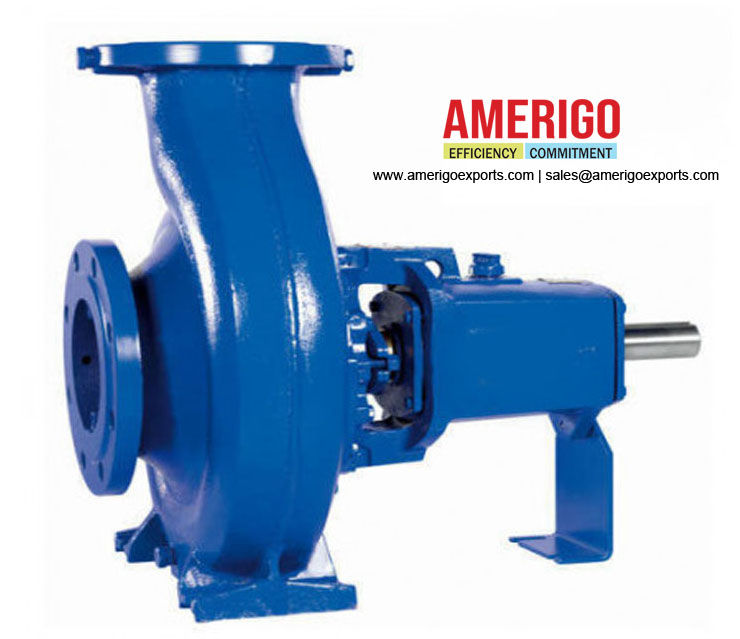Advantages of Centrifugal Pumps
- Amerigo Exports
- Oct 24, 2023
- 2 min read
Centrifugal pumps manufacturers in India offers several advantages in various industrial, commercial, and residential applications due to their design and operational characteristics. Here are some of the key advantages of centrifugal pumps:
Simplicity of Design: Centrifugal pumps have a relatively simple design, consisting of a rotating impeller and a stationary casing. This simplicity makes them easy to manufacture, install, and maintain.
Wide Range of Applications: Centrifugal pumps are versatile and can be used for a wide range of applications, including water supply, wastewater treatment, irrigation, HVAC systems, chemical processing, and more.
High Flow Rates: They are capable of handling high flow rates, which makes them suitable for applications where a large volume of fluid needs to be moved.
Efficient at Handling Low-Viscosity Fluids: Centrifugal pumps are particularly efficient at handling low-viscosity fluids, such as water and thin chemicals.
Self-Priming: Some centrifugal pumps can be designed to be self-priming, meaning they can create a vacuum to draw in fluid without the need for external priming.
Continuous Operation: Centrifugal pumps can run continuously without overheating when used within their design parameters.
Low Maintenance Requirements: Maintenance for centrifugal pumps is relatively simple and mainly involves regular inspection, lubrication, and occasional impeller or seal replacement.
Variable Flow Rates: The flow rate of a centrifugal pump can be adjusted by changing the speed or impeller size, allowing for precise control over the flow without altering the system's pressure.
Relatively Low Cost: Centrifugal pumps are often more cost-effective compared to other pump types, making them a popular choice in many applications.
Durability: When properly maintained, centrifugal pumps can have a long operational life, making them a reliable choice for various applications.
Minimal Noise and Vibration: Centrifugal pumps tend to generate less noise and vibration compared to other pump types, contributing to a quieter and smoother operation.
Low Risk of Clogging: Centrifugal pumps are less prone to clogging since they have relatively open impellers and can handle small solids or debris in the fluid.
Energy Efficiency: They can be energy-efficient when properly sized and operated within their design parameters, reducing energy consumption and operational costs.
Scalability: Centrifugal pumps are available in a wide range of sizes and can be scaled to match the specific needs of an application.
Redundancy: Multiple centrifugal pumps can be installed in parallel or in a series to provide redundancy and ensure continuous operation in critical applications.
It's important to note that while centrifugal pumps offer numerous advantages, they may not be the best choice for every application. Factors such as fluid viscosity, head requirements, and the presence of solids or abrasive materials should be considered when selecting the most appropriate pump type for a specific task.





Comments